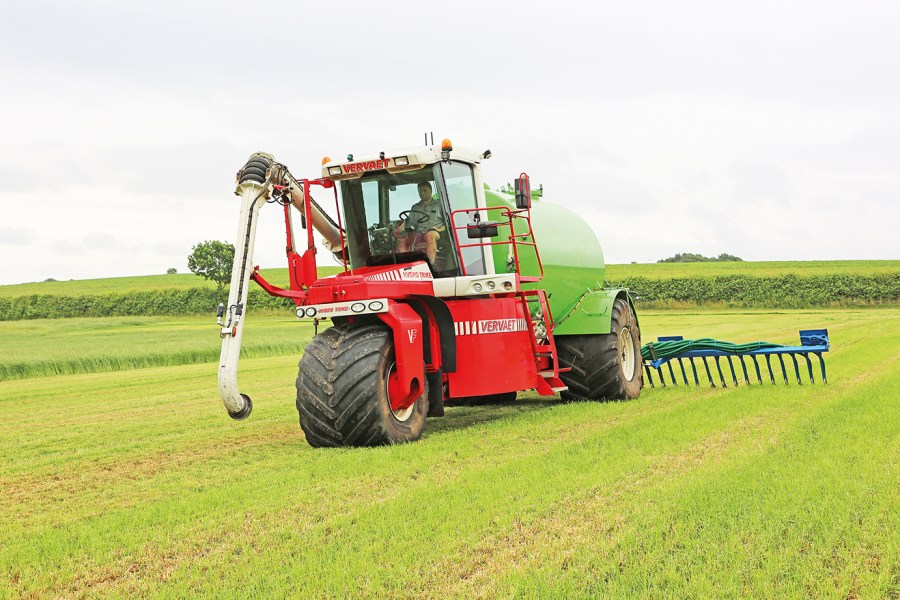REPORT: The switch from combining crops to an AD plant has seen a lot of changes at Taylor Farms’, with a forager not the only self-propelled being operated by the Oxfordshire-based farming operation, it also runs a refurbished Vervaet Hydro Trike to maximise the value of the digestate as part of its shift to regenerative agriculture.
Selecting a Vervaet Hydro Trike self-propelled rather than a large trailed slurry tanker was part of a wider change of farming system at Taylor Farms of Swalcliffe, near Banbury, Oxfordshire where a considerable area of cereals is grown but nothing is combined.
A decade ago, Taylor Farms was a relatively conventional family-run arable farming business growing high-yielding combinable crops on owned and contract-farmed land. But a desire to increase the organic matter levels of the farm’s 380ha of light sandy Cotswold brash inspired the construction of an anaerobic digestion (AD) plant.
“Although we get enough rainfall it’s not strong wheat ground, and it was noticeable that our soils were getting poorer,” explains James Taylor. “It seemed to be a case of either increasing cattle numbers or going into chickens to return some organic matter and halt the decline. We were also looking for a diversification project, and the AD plant came along at the right time.”
The farm’s 499kW AD plant started producing energy in September 2014 and is run as Stour Energy. Initially, maize was incorporated into the existing rotation of winter wheat and oilseed rape to provide feedstock. But big changes were afoot, including an end to contract farming and a drive towards regenerative agriculture.
“Our neighbours also grew maize for the AD plant, but two of these decided to enter their entire farms into stewardship schemes, so we needed to produce more feedstock ourselves,” continues James. “This actually worked well, and everything grown on our farm now goes into the digester which in turn provides enough digestate for us to apply some to each field every year. We try and do a lot for our soils and the AD plant has allowed us to experiment with our cropping in a way that wouldn’t be possible if we were growing crops for combining.”






